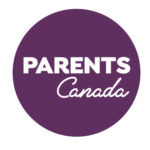Baby
2 min Read
How Do You Know It’s Roseola?

September 11, 2009
Baby
2 min Read

September 11, 2009
WHAT IS ROSEOLA? According to the BC Health guide, roseola (roseola infantum) is a mild illness caused by a virus. It is generally harmless and is most common in children six months to two years of age. It is rare after the age of four. Roseola is caused by two common viruses that belong to the herpes family. (They don’t, however, cause cold sores or genital sores as herpes simplex does.) Roseola is contagious before the rash appears and is passed on through tiny secretions from the nose and throat. It’s very important, therefore, to wash any toys that are shared. Children can pass on roseola before they even know they have the disease. If you know your child has it, you must keep him or her away from others for 24 hours after the fever has subsided.
IS IT ROSEOLA? The symptoms of roseola can be mistaken for many other illnesses. The following symptoms can help determine if your child has it: